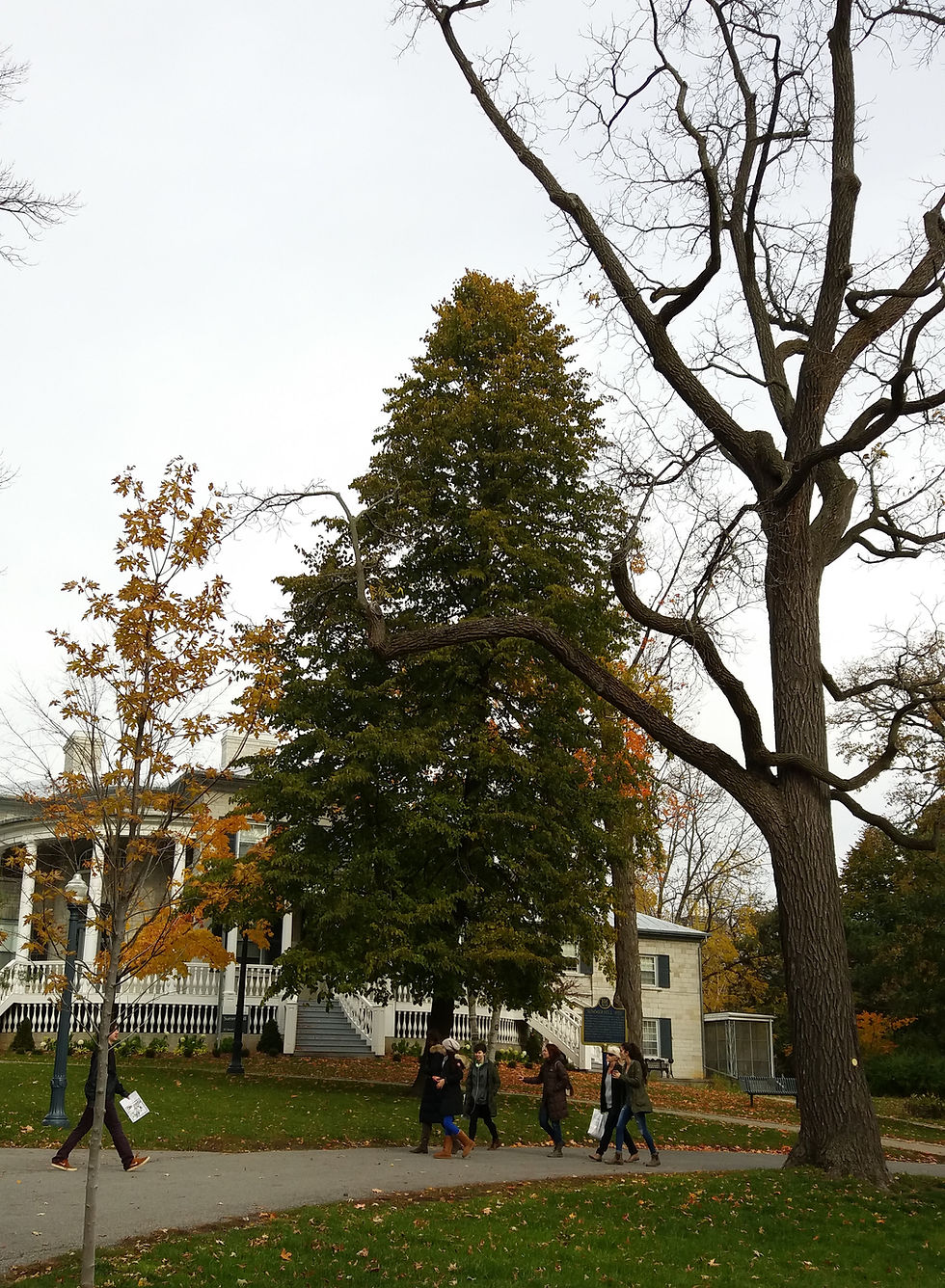Excerpts from Lisa’s Narrative
- 邢德玉 Cindy Xing
- Jun 25, 2017
- 2 min read
At the time of the interview, Lisa was enrolled in the Arts and Science undergraduate program and had been in Canada for four months. She was admitted to the university with an IELTS spoken score of 5.5.
Figure 4. Artistic representation of Lisa’s story, photograph taken by Lisa.

Lisa’s description of her artistic representation.
Studying here in Canada with limited spoken English just feels like that barren tree in the picture. Unlike the other trees around it, it has lost all its leaves, all barren. It’s just like my life here as an international student in a Canadian university—I lost everything I had in China, my social influence, my confidence, my voice, and everything, just like that tree in the picture, barren. Nothing worked after I arrived here because of my inability to communicate, academically or socially.
Lisa’s narrative excerpts.
My inability to speak English takes my voice away in the Canadian community. During a recent floor meeting, our residence don was asking for feedback on our homecoming activities. She seemed to be talking about the football game and asked for a vote by show of hands. I did not really understand her but I saw other students hold up their hands, so I thought, “Well, they all have their hands up. I might as well do it too.” But the truth is I did not even go to the football games. I felt like I lost my real voice and had no choice but to follow, which made me sad. Then she asked us to give oral feedback one by one. A lot of Canadian students were giving quite a lot of constructive feedback. However, when it came to my turn and all eyes turned on me, all I could say was just, “Ok. That’s Ok. I think it’s good.” At that moment, the looks in Canadian students’ eyes hurt me. They seemed to be saying, “Wow, you don’t even have an opinion and can’t even speak in front of people.” That really hurt me. But the truth was my language expression ability was constrained in English. I felt so embarrassed and awkward. Although this event seems trivial, I don’t know what other big important decisions I will have to encounter in the future in my study here where I will be required to give my voice. I don’t want to see myself lose my say on important issues one day because of my oral English constraint.
I felt like Canadian students and I were not equal individuals because I could not express myself in English. When I could not say what I thought and how I felt, I felt weak among them, unable to have conversations with them on an equal basis. I think only when one can express oneself can one truly exercise the right to speak. And only when that person’s voice is heard can people really have respect for them.
















Comments